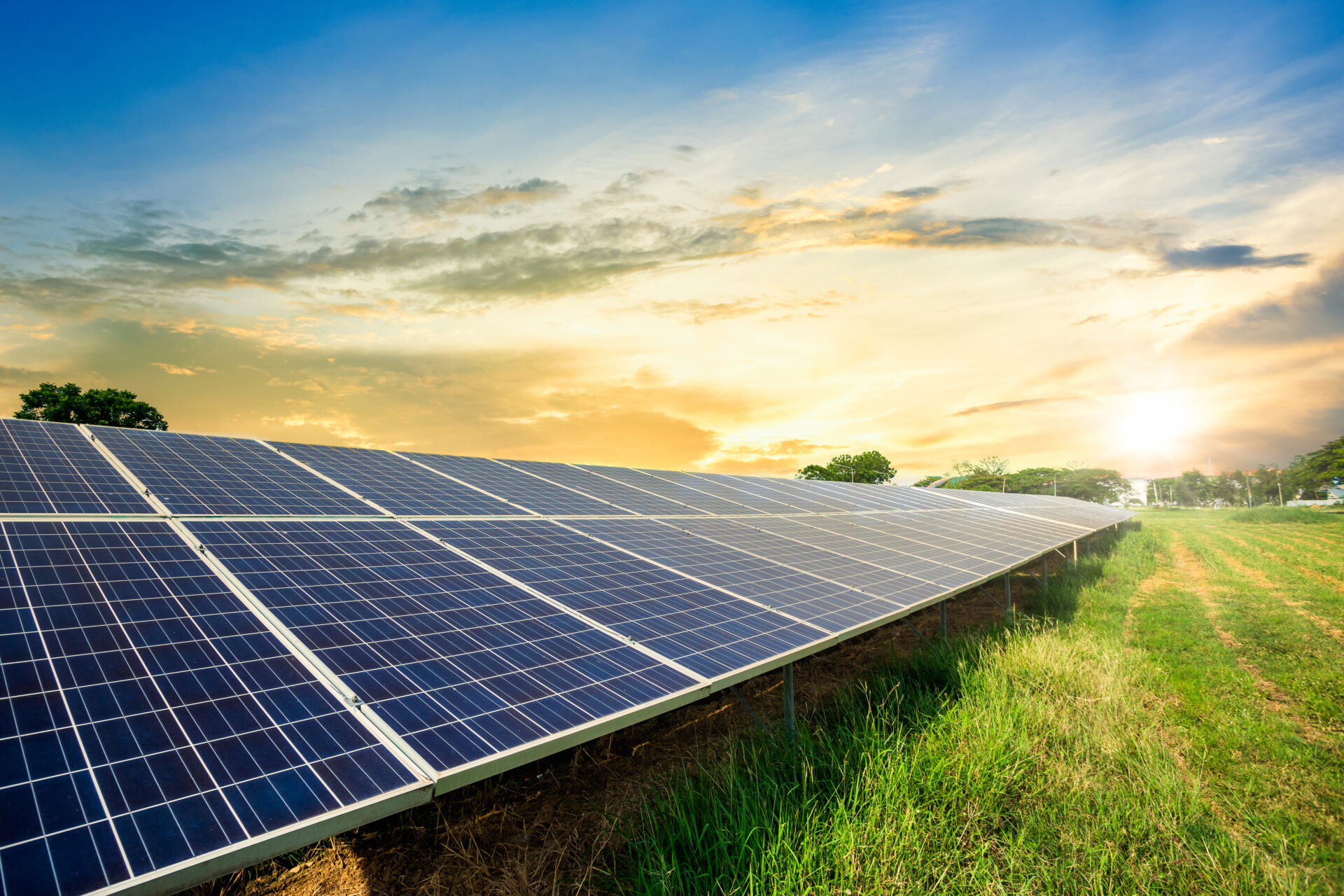Brief overview of solar energy as a renewable source.
Solar energy is a clean and renewable energy source that comes from the sun’s rays. Unlike fossil fuels, which are finite and contribute to environmental pollution, solar energy is abundant, sustainable, and does not produce harmful emissions. Solar panels capture sunlight and convert it into electricity through photovoltaic cells, making it an eco-friendly alternative to traditional power sources. With the growing focus on reducing carbon footprints and addressing climate change, solar energy plays a key role in the transition to a greener, more sustainable energy future.
Importance of understanding different solar system types
Understanding the different types of solar systems—On-Grid, Off-Grid, and Hybrid—is crucial for selecting the right solution for your energy needs. Each system offers distinct benefits and limitations based on factors like location, budget, and energy consumption. For instance, On-Grid systems are ideal for urban areas with reliable electricity access, while Off-Grid systems provide independence in remote locations. Hybrid systems offer a balance of both, combining energy storage with grid connectivity for backup. By understanding these options, you can make an informed decision that aligns with your specific requirements, ensuring cost-effectiveness, energy reliability, and sustainability.
Purpose of the article:
The purpose of this article is to clarify the key differences between On-Grid, Off-Grid, and Hybrid solar systems. By breaking down the unique features, advantages, and disadvantages of each type, this article aims to provide readers with the knowledge they need to make an informed choice about the best solar solution for their needs. Whether you’re looking to reduce energy costs, increase energy independence, or improve sustainability, understanding these systems will help you choose the most suitable option for your home or business.
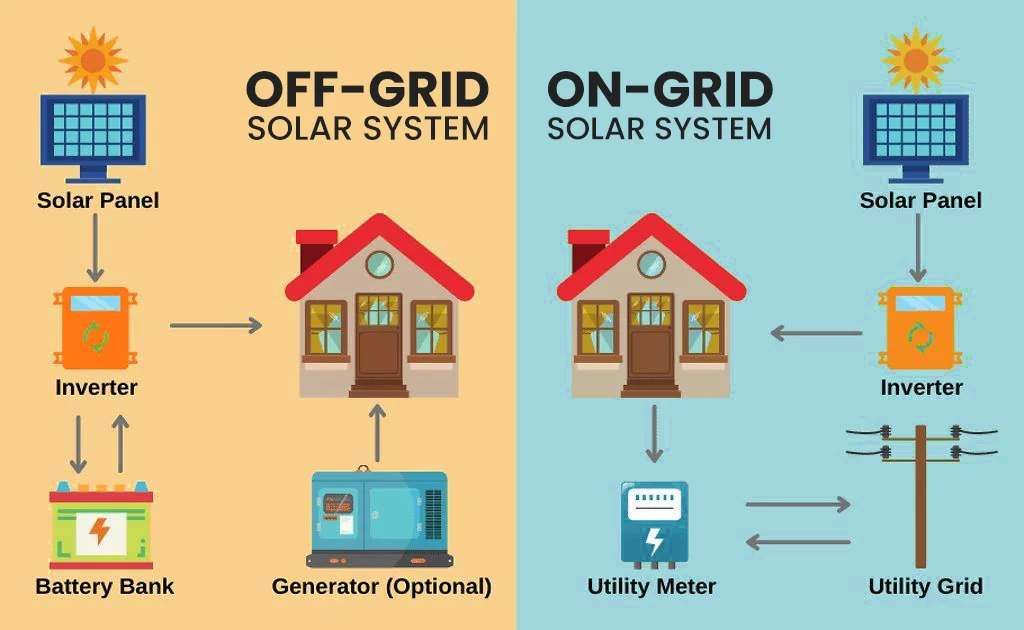
Overview of Solar System Types
Solar energy systems are designed to capture the sun’s energy and convert it into electricity, offering a sustainable and renewable power source. These systems serve the general purpose of reducing dependence on traditional fossil fuels, lowering electricity bills, and promoting environmental sustainability by minimizing carbon footprints.
There are three main types of solar systems:
- On-Grid (Grid-Tied) Systems: These systems are connected to the public electricity grid, allowing excess energy generated by the solar panels to be sent back to the grid. On-Grid systems rely on the grid for backup power when solar energy production is insufficient, making them ideal for areas with reliable grid infrastructure.
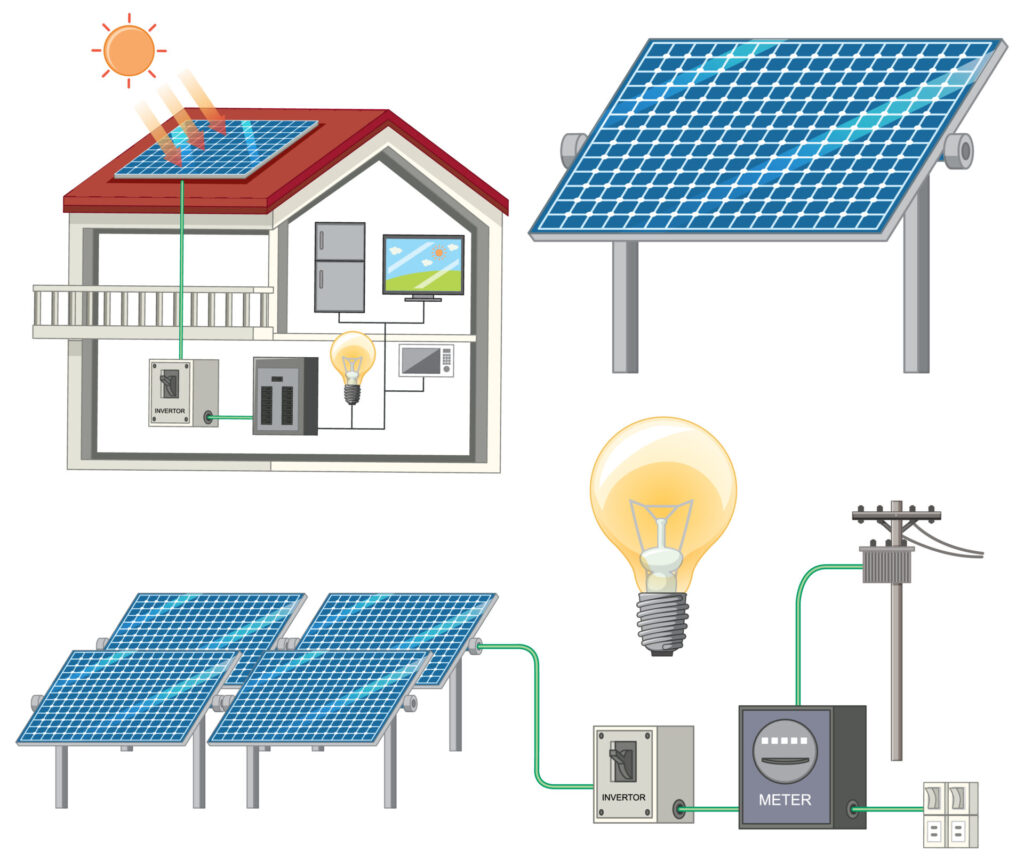
Off-Grid Systems: Independent of the electricity grid, Off-Grid systems generate and store energy in batteries, ensuring a constant power supply even when solar generation isn’t available (e.g., during the night or cloudy days). These systems are perfect for remote locations or areas with no access to the electricity grid, providing complete energy autonomy.
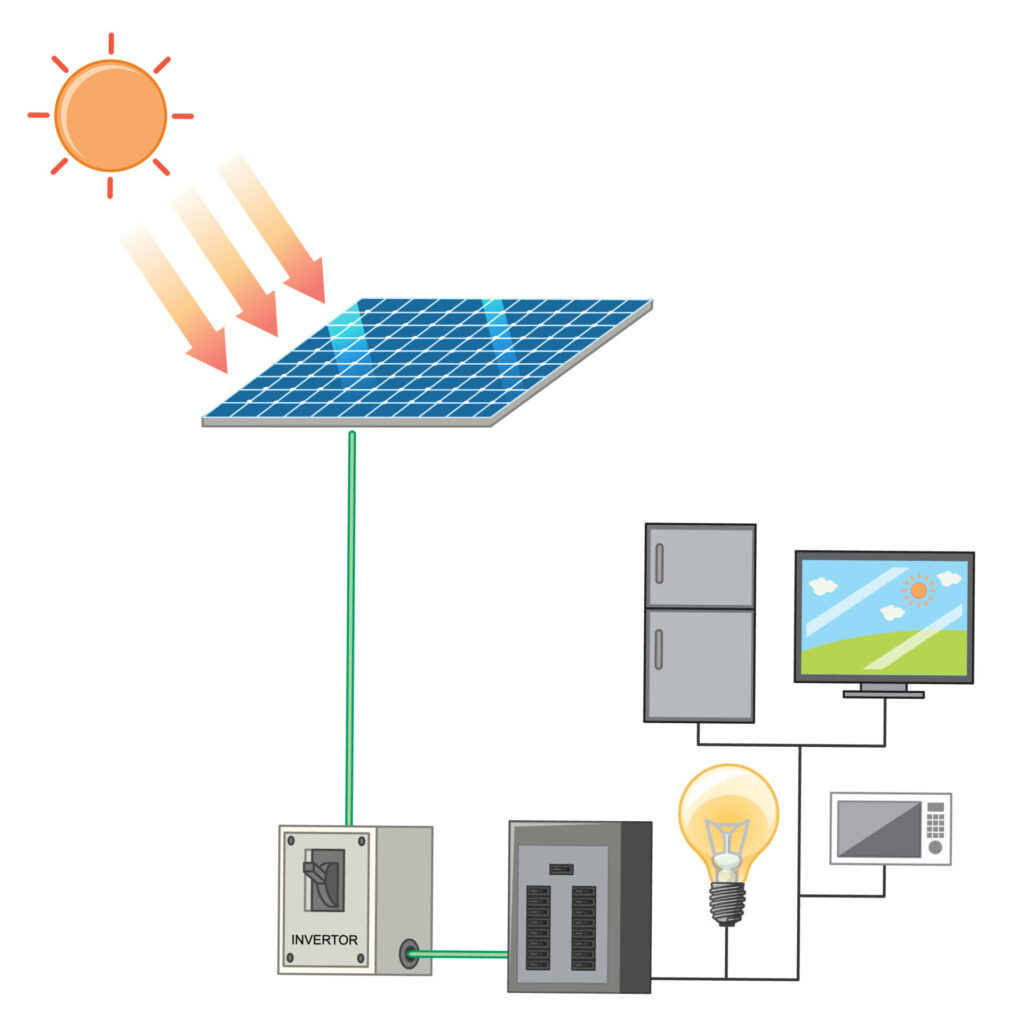
Hybrid Systems: Combining features of both On-Grid and Off-Grid systems, Hybrid systems store excess energy in batteries while staying connected to the grid for backup. This type of system provides the flexibility to use solar energy when available, store it for later use, and draw power from the grid if necessary, ensuring energy security and reliability.
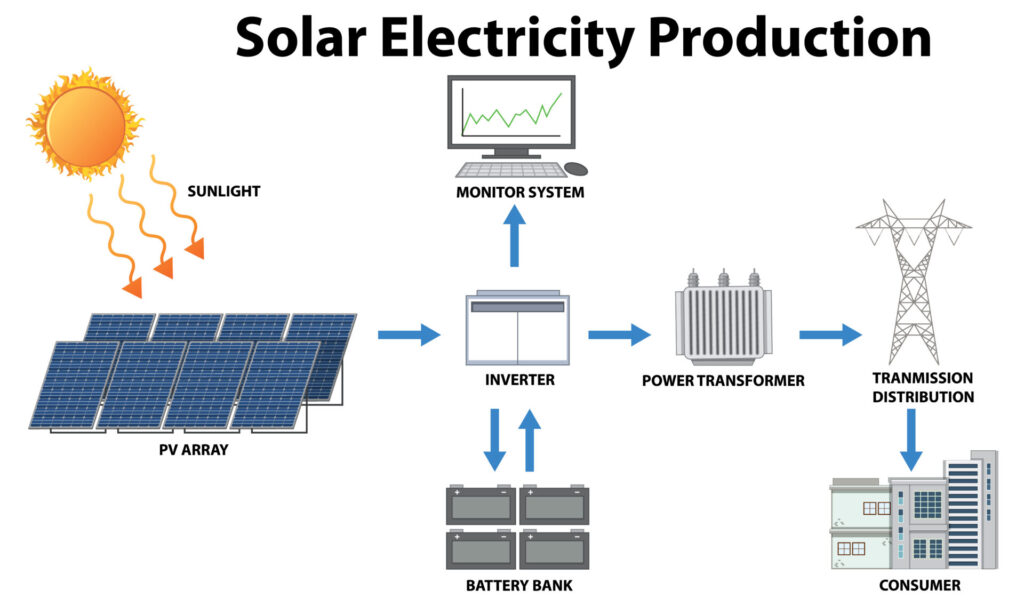
Each of these systems offers distinct advantages, making it essential to understand which is best suited to your energy needs and location.
On-Grid Solar Systems
On-Grid solar systems are connected to the main electricity grid, allowing them to both receive and send electricity to and from the grid.
How It Works:
- Solar panels generate electricity by converting sunlight into power.
- Any excess electricity produced by the solar panels is sent back to the grid, which may earn you credits or compensation through a process called net metering.
- When the solar panels are not generating enough electricity (e.g., during cloudy days or at night), the system draws power from the grid to meet energy needs.
Advantages:
- Cost-effective installation: On-Grid systems are typically cheaper to install because they do not require battery storage.
- No need for battery storage: Since excess energy is fed back to the grid, there is no need for costly batteries to store energy.
- Can earn credits through net metering: On-Grid systems often provide the opportunity to earn credits for surplus energy, reducing overall electricity costs.
Disadvantages:
- Dependency on the grid: If there is a power outage in the grid, the solar system will not function as it requires grid connectivity.
- No power during grid outages: In the event of a grid failure, the system will not provide backup power unless combined with battery storage.
Ideal For:
- Urban areas with reliable grid infrastructure: On-Grid systems are most effective in locations with stable and reliable electricity access, making them a great choice for cities and populated areas.
Off-Grid Solar Systems
Off-Grid solar systems operate independently from the electricity grid, providing a self-sufficient power solution without relying on external energy sources.
How It Works:
- Solar panels generate electricity from sunlight, which is then used to power your home or business.
- Excess energy produced during the day is stored in batteries for use during the night or on cloudy days when solar generation is low.
- The system is completely independent, meaning there is no need to draw power from the grid.
Advantages:
- Complete energy independence: Off-Grid systems provide full autonomy from the grid, making them ideal for areas where grid access is unavailable or unreliable.
- Suitable for remote areas without grid access: These systems are perfect for rural or isolated locations where extending the electricity grid would be impractical or too costly.
Disadvantages:
- Higher installation and maintenance costs: The need for batteries, inverters, and additional equipment makes Off-Grid systems more expensive to install and maintain compared to On-Grid systems.
- Limited energy availability depending on battery storage: The amount of energy available is directly related to the size and capacity of the battery storage. Insufficient battery capacity may lead to power shortages during extended cloudy periods or high consumption.
Ideal For:
- Remote or rural areas: Off-Grid systems are well-suited for locations far from grid infrastructure, where solar energy can provide a reliable power source.
- Locations with unreliable grid access: These systems are also ideal for areas that experience frequent power outages or unreliable grid service.
Hybrid Solar Systems
Hybrid solar systems combine the features of both On-Grid and Off-Grid systems, offering a flexible and reliable energy solution.
How It Works:
- Hybrid systems generate electricity through solar panels, storing excess energy in batteries for use during non-sunny periods.
- While connected to the grid, the system can draw power from the grid when the stored energy is depleted or when solar generation is insufficient.
- This setup allows for a seamless balance between solar energy usage and grid power, ensuring continuous energy supply even during times of high demand or grid outages.
Advantages:
- Energy storage for backup: The inclusion of battery storage provides backup power, ensuring access to electricity even during grid failures or at night.
- Flexibility in energy management: Hybrid systems offer the ability to manage energy usage more efficiently by using solar power when available and switching to the grid when needed.
- Reduces reliance on the grid while providing stability: By storing excess energy, hybrid systems reduce dependence on the grid but still provide the security of drawing power from it during shortages.
Disadvantages:
- More expensive than on-grid systems: Hybrid systems require additional components, such as batteries and advanced controllers, making them more costly to install compared to On-Grid systems.
- Requires more complex installation and maintenance: The combination of grid connectivity and energy storage adds complexity to both the installation and ongoing maintenance of the system.
Ideal For:
- Homeowners seeking energy security: Hybrid systems are ideal for those looking to have reliable backup power while also reducing their dependency on the grid.
- Areas with occasional grid outages: These systems are well-suited for regions where grid service is intermittent or prone to outages, ensuring a consistent power supply even during disruptions.
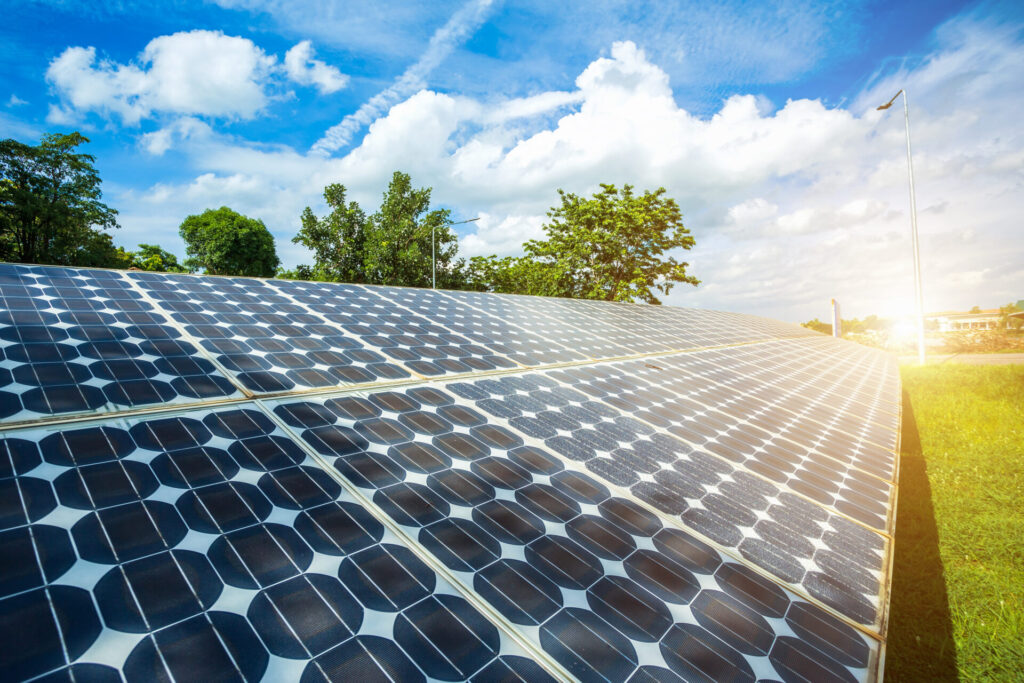
Factors to Consider When Choosing
1. Location and Grid Reliability:
The availability and reliability of the electricity grid in your area are crucial factors. If you live in an urban area with consistent grid access, an On-Grid system may be the most cost-effective choice. However, if you reside in a remote or rural area with unreliable grid service, an Off-Grid or Hybrid system could provide more stability and security.
2. Energy Needs and Consumption Patterns:
Assess your daily energy consumption to determine which system is best suited for your needs. If you have high energy demands and want to ensure constant power supply, a Hybrid system may be ideal. For lower energy consumption, an On-Grid system may suffice, while Off-Grid systems can be considered if you want complete energy independence.
3. Budget and Long-Term Cost Implications:
The upfront cost of installation and the long-term savings are important considerations. On-Grid systems typically offer the lowest initial cost, but Off-Grid and Hybrid systems involve higher investments due to the need for batteries and more complex installations. Consider your budget for both installation and maintenance, as well as the potential savings over time from reduced energy bills.
4. Environmental and Sustainability Goals:
If your goal is to reduce your carbon footprint and live sustainably, solar energy is a great choice. However, if environmental impact is a major concern, Off-Grid and Hybrid systems provide greater energy independence, reducing reliance on fossil fuels. On-Grid systems also contribute to sustainability by generating clean energy, but their environmental impact depends on the grid’s energy mix.
Conclusion
In summary, choosing the right solar system for your home or business depends on various factors such as location, energy needs, budget, and environmental goals. On-Grid systems are ideal for urban areas with reliable grid access and offer cost-effective installation. Off-Grid systems provide complete energy independence, making them perfect for remote areas with no grid access, though they come with higher upfront costs. Hybrid systems offer a flexible solution, combining energy storage and grid connectivity, providing the best of both worlds for areas with occasional grid outages or for those seeking energy security.
To make an informed decision, it’s important to assess your specific energy needs and consult with a solar expert who can guide you toward the best option for your circumstances.
Ready to explore the right solar solution for you? Contact us at Esa Energy Private Limited for expert advice and installation!
📞 Contact Us:
Call Now: +92 332 9349811
Email: sales@esaenergy.com.pk
Website: www.esaenergy.com.pk

